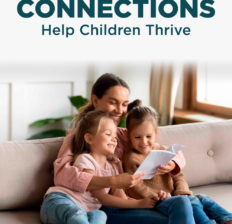This Dr. Axe content is medically reviewed or fact checked to ensure factually accurate information.
With strict editorial sourcing guidelines, we only link to academic research institutions, reputable media sites and, when research is available, medically peer-reviewed studies. Note that the numbers in parentheses (1, 2, etc.) are clickable links to these studies.
The information in our articles is NOT intended to replace a one-on-one relationship with a qualified health care professional and is not intended as medical advice.
This article is based on scientific evidence, written by experts and fact checked by our trained editorial staff. Note that the numbers in parentheses (1, 2, etc.) are clickable links to medically peer-reviewed studies.
Our team includes licensed nutritionists and dietitians, certified health education specialists, as well as certified strength and conditioning specialists, personal trainers and corrective exercise specialists. Our team aims to be not only thorough with its research, but also objective and unbiased.
The information in our articles is NOT intended to replace a one-on-one relationship with a qualified health care professional and is not intended as medical advice.
New Study Shows Family Connection Associated With Greater Prevalence of Flourishing for Adolescents
June 1, 2022

What happens when an adolescent feels cared for, safe and supported at home? According to a study published last month, the child is much more likely to flourish when she has experienced a sense of family connection.
We know from happiness studies that good relationships protect our brains and even increase longevity, and these recent findings indicate that the relationships inside your home can be extremely influential in how a child feels about herself and her environment.
Study Findings: Family Connections Help Children Thrive
A May 2022 study published in the journal Pediatrics sought to determine whether higher levels of family connection are associated with a greater prevalence of flourishing in adolescence.
Between 2016–2019, researchers surveyed over 37,000 adolescents between the ages of 11 and 13 from 26 countries. “Family connection” was based on a mean score of five items that asked about care, support, safety, respect and participation, and “flourishing” was based on a mean score of six items that asked about self-acceptance, purpose in life, positive relations with others, personal growth, environmental mastery and autonomy.
Survey results showed that among adolescents, greater family connection was associated with higher prevalence of flourishing, which serves as an addition to past studies that link family connection to a decrease in negative outcomes.
What It Means
The survey outcome suggests that relational health within a family does more than reduce the risk of negative outcomes — it also contributes to a child flourishing as an individual.
For the study survey, adolescents with a good family connection gave the following statements high scores:
- There are people in my life who care about me.
- If I have a problem, people in my family will help me.
- I feel safe at home.
- My parent(s) listen to me and take what I say into account.
- My parents and I make decisions about my life together.
To establish whether or not the adolescents were flourishing, they were asked to rank the following statements:
- I like being the way I am.
- I am good at managing my daily responsibilities.
- People are generally friendly towards me.
- I have enough choice about how I spend my time.
- I feel that I am learning a lot at the moment.
- I feel positive about my future.
Researchers found that high scores for the statements regarding family connection were aligned with high scores for statements regarding flourishing, which shows that youngsters feel that when they are supported, respected and cared for at home, they have those same feelings for themselves.
Tips to Foster Stronger Family Connections
According to this recent study, parents have a powerful, influential role in the household. Their actions determine whether or not a child will feel a bond that leads to self-assurance, responsibility and positivity.
How do you foster a stronger family connection? Try these tips:
- Gather for dinner. Dinnertime around the family table is the perfect opportunity to grow deeper connections, even if you’re simply talking about your day. A 2020 study found that family dinner is associated with reduced anxiety in children and better family relationships. Even better, start by cooking together and then sitting down to share the meal.
- Get involved: For children and adolescents, simple acts of involvement can mean a lot and help build self-confidence and a sense of support. Attending a soccer game, taking a group of friends out for a fun night, having a lunch date or making weekend plans together are all ways to get involved and create a stronger family bond. If you have multiple children, finding one-on-one time with each family member is also important.
- Set healthy boundaries: When parents show their children what it’s like to have healthy boundaries, it helps them navigate relationships with others. This means setting time aside for family and away from work, being open to other perspectives, and respecting personal space.
- Lean on family. Parenting can be hard, and sometimes you need an extra pair of hands (or hearts) to help out. The good news is that there are also benefits of aunts and uncles, along with benefits of grandparents. They, too, contribute to a strong family connection by showing support and engaging with children.
Conclusion
- A study published in May 2022 in the journal Pediatrics sought to determine whether higher levels of family connection are associated with a greater prevalence of flourishing in adolescence.
- Researchers found that among adolescents greater family connection was associated with higher prevalence of flourishing.
- To foster a stronger family connection, spend time cooking and eating together as a family, get involved in daily activities and special outings, set healthy boundaries, and turn to trusted family members for support.











